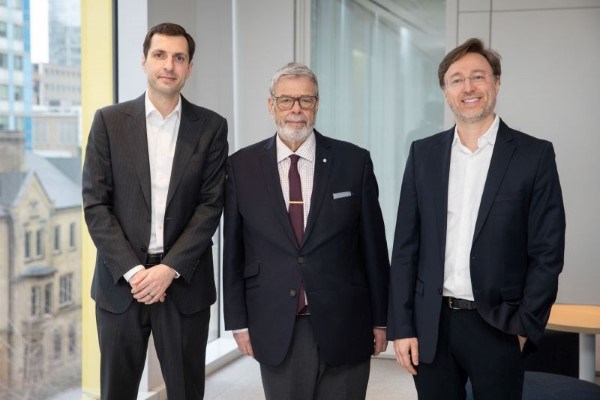New partnership project aims to bring customizable treatments to patients with genetic conditions
Summary:
This project is funded by the Precision Child Health Partnership Translational Program, part of the collaborative efforts between two of Canada’s largest child health research hospitals, SickKids and CHU Sainte-Justine. The project is powered by the catalytic philanthropy of the Azrieli Foundation and their landmark grant to both institutions in December 2023.
One innovative project led by joint principal applicants at The Hospital for Sick Children (SickKids) and CHU Sainte-Justine has been awarded $800,000 to bring Precision Child Health to the bedside.
Drs. Gregory Costain (SickKids) and Philippe Campeau (CHU Sainte-Justine) are the inaugural awardees of the Precision Child Health Partnership (PCHP) Translational Program, made possible through the Azrieli Foundation, whose $50-million transformational gift fuels the partnership. Their multi-disciplinary research team includes experts across both institutions, as well as patient and family partners.
The PCHP is a groundbreaking collaboration between two of Canada’s largest child health research hospitals, SickKids and CHU Sainte-Justine. The partnership is focused on working together to harness cutting-edge science, technology and data analysis to improve patient outcomes through individualized care.
The Translational Program, as part of the PCHP, is designed to support cross-institutional teams in carving new paths to innovation, discovery and the translation of new, individualized approaches into patient care.

The awarded project, ASO Connect, aims to make ASOs (antisense oligonucleotides) more accessible to children and youth with rare diseases. ASOs are a promising new approach to treat genetic conditions. They are short, synthetic, single-stranded molecules designed to bind to RNA. This binding can regulate harmful transcripts, correct splicing errors, or increase protein expression to help treat rare diseases.
“We are excited by the prospect of ASO treatment because they are customizable to individual patients and their unique genetic differences,” says Costain, Co-lead of Advanced Therapeutics, Staff Physician, Scientist, Genetics & Genome Biology, SickKids. “However, there are still major challenges in expanding access, identifying eligible children and designing ASOs for testing.”
With the funding, the team plans to facilitate more proactive identification of children with genetic diagnoses that might be amenable to ASO treatment. Additionally, they aim to design ASO sequences in advance so they can be rapidly tested, speeding up pre-clinical development and ensuring scalability through an open-access platform.
“ASO Connect is a transformative step towards targeted treatment and better outcomes for children at both centres and beyond,” says Campeau, Geneticist and clinician-scientist, Centre de recherche Azrieli, CHU Sainte-Justine. “We have the opportunity to change the paradigm, and with this funding, we will.”
Working together, the PCHP aims to unlock a flourishing discovery and research eco-system between the two institutions, unleashing the potential of Precision Child Health.

